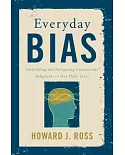This book examines the concept of corruption, its ethical interface, and its measurement. It looks at economies of about 150 countries in different income groups and using cross-country
regression analysis estimates how corruption impacts their economic growth. In the light of experience of some major global economies, it suggests a strategy for meeting the challenge of
political and petty corruption. It identifies the drag effect of low incomes on the ability of countries to lower corruption and focuses on the centrality of growth for reducing corruption.
The study brings out the criticality of systemic reforms, especially of institutions, participation of community, and education. It strongly emphasizes the need for laws covering corruption
in both the government and private companies and a fair and independent investigating agency with quick trials of corrupt public servants. The book gives a brief history of corruption in
India, efforts made in recent years, and the much-hyped Lokpal act with changes required in the current law to address corruption.





















